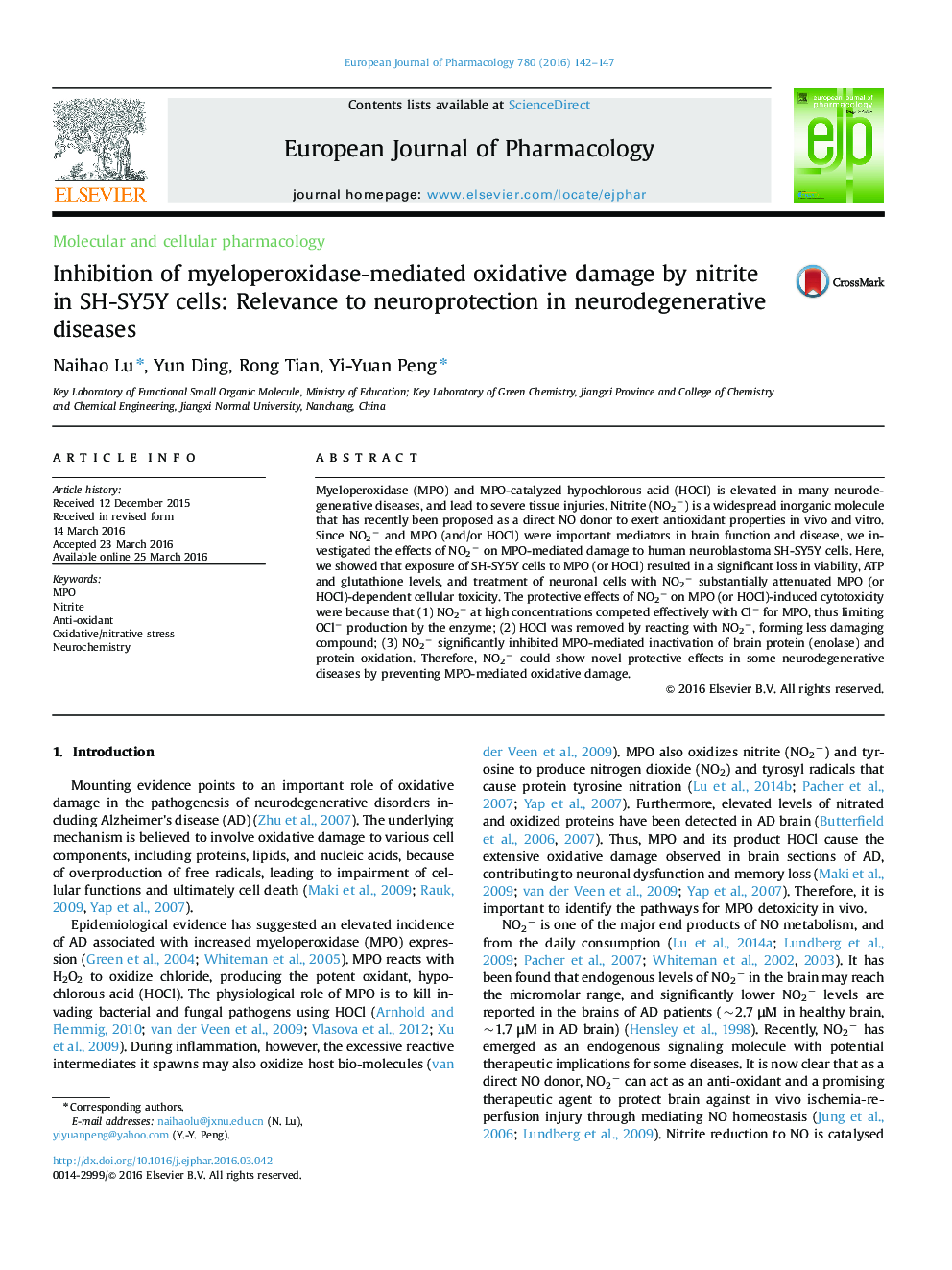| Article ID | Journal | Published Year | Pages | File Type |
|---|---|---|---|---|
| 2530920 | European Journal of Pharmacology | 2016 | 6 Pages |
Myeloperoxidase (MPO) and MPO-catalyzed hypochlorous acid (HOCl) is elevated in many neurodegenerative diseases, and lead to severe tissue injuries. Nitrite (NO2−) is a widespread inorganic molecule that has recently been proposed as a direct NO donor to exert antioxidant properties in vivo and vitro. Since NO2− and MPO (and/or HOCl) were important mediators in brain function and disease, we investigated the effects of NO2− on MPO-mediated damage to human neuroblastoma SH-SY5Y cells. Here, we showed that exposure of SH-SY5Y cells to MPO (or HOCl) resulted in a significant loss in viability, ATP and glutathione levels, and treatment of neuronal cells with NO2− substantially attenuated MPO (or HOCl)-dependent cellular toxicity. The protective effects of NO2− on MPO (or HOCl)-induced cytotoxicity were because that (1) NO2− at high concentrations competed effectively with Cl− for MPO, thus limiting OCl− production by the enzyme; (2) HOCl was removed by reacting with NO2−, forming less damaging compound; (3) NO2− significantly inhibited MPO-mediated inactivation of brain protein (enolase) and protein oxidation. Therefore, NO2− could show novel protective effects in some neurodegenerative diseases by preventing MPO-mediated oxidative damage.
